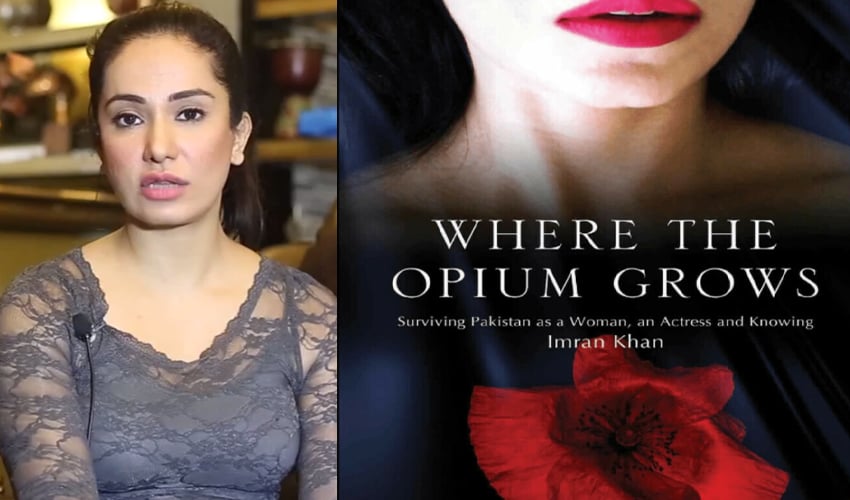Former actress Hajra Khan has unveiled intriguing insights into her upcoming book, 'Where the Opium Grows: Surviving as a Woman, an Actress, and Now Imran Khan,' attributing 40% of its content to the former Prime Minister.
Ms Khan discussed her career and forthcoming book during an appearance on private TV channel, unveiling the evolution of her memoir over the years.
Originally penned in 2014, Khan revealed that the initial manuscript was relatively concise and remained unpublished due to legal complications. However, she has since expanded the book with additional material, now poised for publication.
Narrating her journey, Khan highlighted her departure from the entertainment industry in 2014, relocating to the UK. Determined to see her story in print, she invested her savings and received support from her father to engage a publishing house.
Born into a Pashtun family in Quetta, Balochistan, Khan shared her transition to Karachi after pursuing acting, gaining prominence from the acclaimed dramas 'Bare Woman' in 2010 and 2011, followed by earlier roles.
Discussing her acquaintance with Imran Khan, Hajra Khan mentioned their first meeting at an actress’s birthday party in Karachi. She elaborated on their subsequent interactions and growing rapport, emphasizing Imran Khan's distinct persona beyond the public façade.
Acknowledging Imran Khan's iconic status within her family, Hajra Khan expressed admiration for his welfare initiatives and detailed her involvement in supporting his philanthropic endeavors.
Portraying Imran Khan as uniquely different from his public persona, Khan disclosed her encounters with him over several years, noting his complexity and contrasting nature.
Beyond Imran Khan, the book touches upon industry dynamics, tackling nepotism, entrenched norms, and even addressing sensitive issues like the 'casting couch' prevalent in showbiz, delving into her own experiences.
Following Khan's revelations, social media buzzed with reactions, polarizing opinions on her disclosures, with some criticizing her motives and deeming the act a pursuit of fleeting attention.
Hajra Khan Panizai asserted that her book encapsulates personal experiences, acknowledging the potential for disagreement while inviting diverse reactions to her narrative.



























